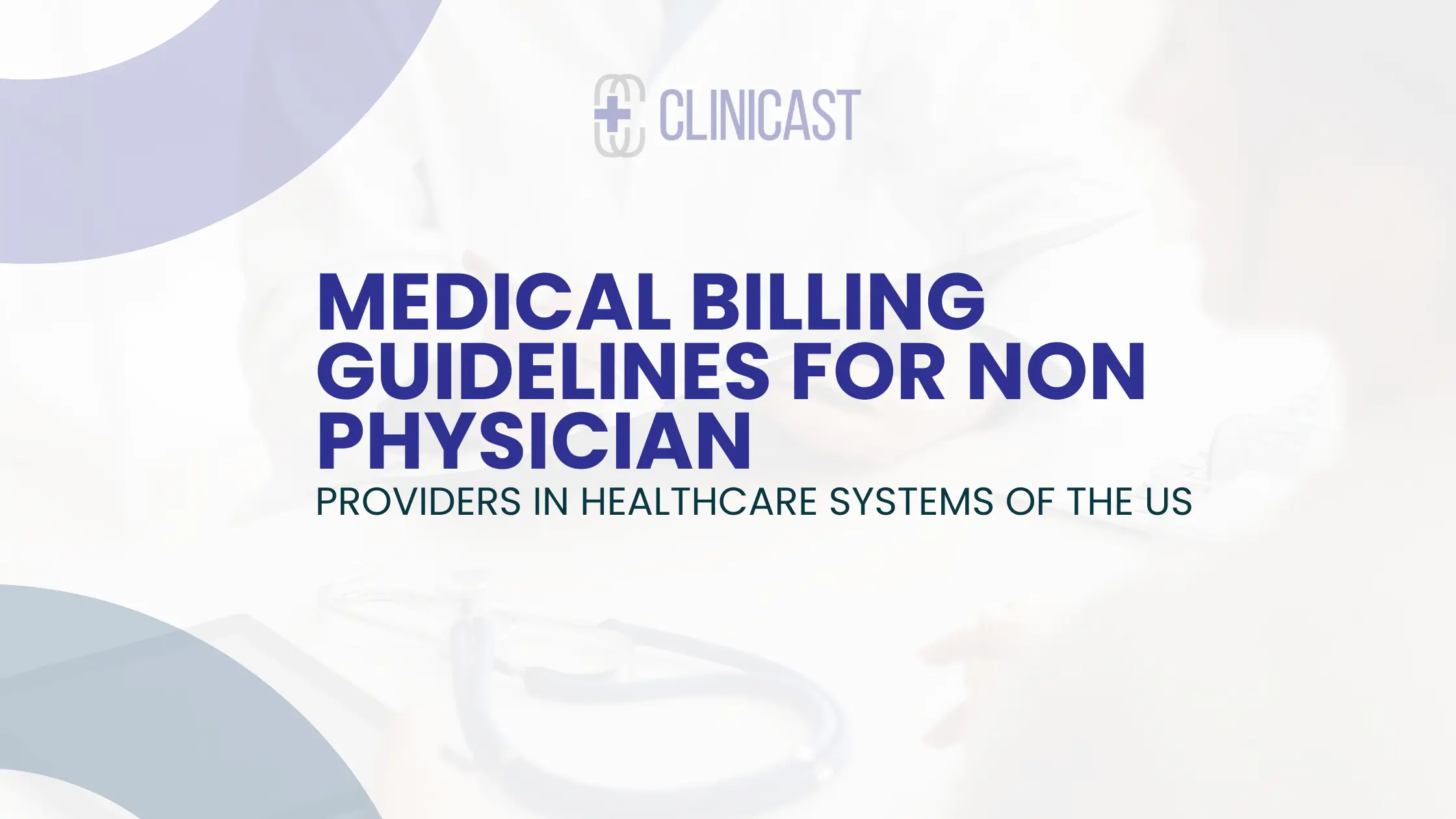The Centers for Medicare and Medicaid Services (CMS) has released new medical billing guidelines for non physician providers (NPPs). These guidelines are effective for services rendered on or after January 1, 2021.
According to the new guidelines, NPPs can bill for initial patient visits, subsequent patient visits, and Consultations. NPPs can also bill for preventive medicine services, diagnostic tests, and other ancillary services.
In addition, NPPs can bill for hospice care, home health visits, and nursing home visits. These new guidelines provide greater flexibility for NPPs to bill for their services.
In order to be eligible for reimbursement, non physician providers must be licensed or certified in their state of practice. In addition, they must be enrolled in Medicare and have a valid National Provider Identification (NPI) number.
Providers who do not meet these requirements will not be eligible for reimbursement for the services they render. This could have a significant impact on providers who were not aware of the new guidelines.
If you are a non physician provider, it is important to familiarize yourself with the new guidelines and ensure that you meet all the requirements.
Who Can Qualify as a Non Physician Provider?

Who Can Qualify as a Non Physician Provider?
There are a number of different types of non physician providers (NPPs) who can render various types of health care services. In the United States, NPPs include but are not limited to nurse practitioners, physician assistants, certified registered nurse anesthetists, and certified nurse midwives.
Typically, there are two types of NPPs, which include Advanced Practice Nurses (APNs) and Physician Assistants (PAs). APNs are generally further divided into certified registered nurse anesthetists, nurse practitioners, and nurse specialists.
Once these APNs provide medical services, there would be two main ways for you to bill them for the services they provided in a specific period of time. The first way to opt-in is ‘incident to’ which comes under the head physician’s NPI bills. But for this, ANPs have to work under the head physician’s supervision.
The next method is billing through NPI numbers of ANPs. This is likely easier for many medical offices as there will be less documentation required for further billing.
To be eligible for reimbursement under the Medicare physician fee schedule, an NPP must be licensed or certified by a state to practice in that and meet every requirement for health care services. NPPs must also be credentialed by Medicare-participating hospitals and other healthcare facilities to provide services to Medicare beneficiaries.
Not all NPPs are created equal, however. Each type of NPP has a different scope of practice, which defines the types of medical services they can provide. For example, some NPPs may be able to prescribe medication while others may not.
Qualifications for Enrolling for Individual NPI Billing
In order to bill as an individual provider under the National Provider Identification (NPI) system, providers must meet the following qualifications:
- Must have a valid NPI number
- Must be Medicare-certified
- Must be enrolled in a CMS-approved Individual Pay-By-Phone or Individual Pay-By-Web provider agreement
- Must have a valid individual Taxpayer Identification Number (TIN)
Providers who meet all of the above qualifications will be able to bill for services rendered using the individual NPI. However, these conditions also need to meet while using NPI billing for unique NPPs;
- NNPs are allowed to provide services as the local state laws
- Services can be billed if the services are rendered by a physician
- The services are covered by insurance laws
- NPP is providing services under the physician’s supervision
What Services can NPPs be eligible to provide?
- NPPs provide a wide range of services to support the professional development of nurses and care staff. They can guide clinical practice, education and training, research, and more. Additionally, NPPs can offer support in the form of advice, resources, and information.
- But NNP patient visits and services are not covered every time. Here’re some common things that NNPs can perform, which will be covered;
- Coordinate referrals
- Provide prescriptions
- Order lab tests
- Collect the medical history of patients
- Promote a healthy living routine
- Treat and diagnose disease
How NPPs help optimize and cut Healthcare Costs?
In addition, nurse practitioner-led primary care is a growing trend in the United States. NPP-led clinics have been shown to provide high-quality, cost-effective care, and they are an increasingly popular choice for patients seeking primary care services. They can help optimize care and cut costs by providing services that complement the work of physicians.
NPPs can play a key role in preventive care, chronic disease management, and care coordination. They can also help fill gaps in access to care, especially in underserved communities.
In addition, NPPs can help reduce the cost of care by providing services at a lower cost than physicians. For example, NPs and PAs often have lower overhead costs than physicians, and they may be able to bill for services at a lower rate.
There are a number of reasons why NPP-led care is so effective. NPPs are able to provide comprehensive care for patients, including preventive care, management of chronic conditions, and acute care. They also have a strong focus on disease prevention, which helps to keep costs down. In addition, NPPs are often able to see patients more quickly than primary care physicians, which helps to reduce wait times and improve access to care.
What to know before you hire a Nurse Practitioner?
When you are ready to hire a Nurse Practitioner (NP), there are a few things you should keep in mind. Here are a few tips on what to look for when you are hiring an NP:
- Make sure the NP you are hiring is certified by the American Nurses Credentialing Center (ANCC). This will ensure that they have the necessary skills and training to provide quality care.
- Ask about the NP’s experience. You want to make sure they have experience in the area of care you are looking for.
- Find out if the NP is comfortable working with electronic health records (EHRs). This is important as more and more hospitals and clinics are using EHRs.
- Make sure the NP you are hiring is licensed to practice in your state. Each state has different licensure requirements.
- Consider the size of your organization and your budget. You will need to make sure you can afford to pay the professional you hire.
- Ask for references. When you are considering hiring a non-profit professional, be sure to ask for references from other organizations they have worked with.
Conclusion
It is a brainer that hiring NPPs in your practice would be worth considering the option. Providers and patients can have an elevated primary care provision in less time where they cost much less than hiring clinical staff separately.
Related Articles:


